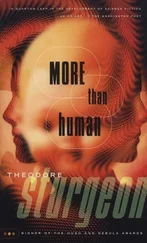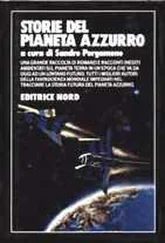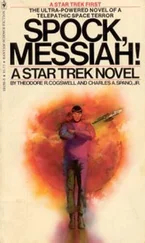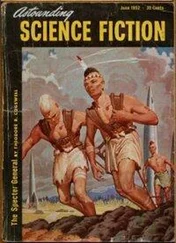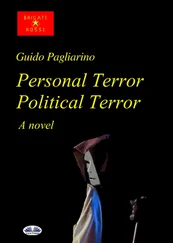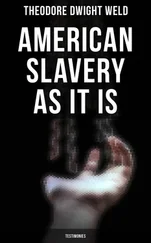Informers were everywhere: everyone was spying on someone; no one was above suspicion. Maybe Sergei was spying on him after all, by pretending not to be spying on him, and if so, someone had to be spying on Sergei. This confusion and hysteria were occurring even in the most backward villages. The sane were becoming insane, the insane, sane. Everything was in a jumble.
Suddenly Kulik thought about Paraska. If anyone was spying on him, it would be Paraska. His heart leapt and he caught his breath. Yes, of course, why hadn’t he thought of it before? Certainly she was spying on him and passing information to Kokoshin or Leyzarov. It all made perfect sense now! She never set limits on the things she said in front of him; she readily and openly attacked the state. And the way she went on about her cow Rohula. Wasn’t she trying to get him to reveal something? Feverishly, he racked his brain trying to remember if he had said anything incriminating to her. No, he hadn’t. He breathed easier for a minute, but before long he became tense again. What about Sergei? Was he an informer or not? The question was tearing Kulik apart. For a brief moment, he actually started to hope that Sergei was an informer — at least as an informer he stood a chance of surviving. His own life was coming to an end, he could feel it with all his heart, but for Sergei at least there would still be hope. He became determined that his good friend would not suffer the same ugly fate that awaited him, no matter what the cost.
Still in his clothes, Kulik sank into bed completely exhausted. Tired as he was, he couldn’t sleep. The room was cold and drafty; he lay shivering, staring into the darkness. The constant ticking of the clock on his nightstand grated on his nerves. The night was still, almost too still, and all at once he thought he heard something, a kind of shuffling noise outside in the hallway, then footsteps. He was certain someone was about to knock on his door and within seconds it would fly open: it was the NKVD coming to get him. They would drag him out of bed, throw him into the back seat of some big black car and whisk him off to an unmarked prison somewhere. With no trial and no judge, like thousands upon hundreds of thousands of others, he would perish, unknown to family and friends.
His head pounding, Kulik got up and paced the room. He was still shivering. and suddenly he became convinced Paraska was there in the room with him, that she was hiding behind the chest of drawers, laughing at him, watching his every move, preparing notes to take to the secret police. He saw one of his pupils emerge, pointing his finger at him and shouting at the top of his voice, “Provocateur! Saboteur! Nationalist! Arrest him!” Excruciating pains shot across his chest. He could no longer separate illusion from reality.
He fell back into bed and pulled the covers up around him. Drenched in sweat, he tried desperately to shake himself free of his hallucinations. Finally, toward dawn, he fell into a fitful sleep.
Around ten o’clock the next morning Kulik was sitting in his office when Cornelius entered, followed by a man and a woman. The man was tall, with graying hair and sharp features, and the woman, thin almost to the point of emaciation, was not much over twenty.
Cornelius handed Kulik several official documents, and announced, “Allow me to present our new teachers. They have just arrived from Pinsk.”
Kulik scanned the papers. They all had appropriate stamps and seals and officially introduced the new teachers: the man, Liavon Maximovich Ivashkevich and the woman, Haya Fifkina Sruleyevna. The two stood side by side, erect, waiting patiently. They did not speak.
Kulik took them on a tour of the school grounds. He told them that classes started at eight in the morning and ended at one o’clock Monday through Saturday; the children were to arrive at school with completed assignments; singing classes were conducted in the afternoon right before recess; and lunch was eaten at their desks at twelve-fifteen. He showed them the classrooms, first grade to eighth, the school supply room, the staff room, and the storage closet. When the tour was finished, he asked them if they had found suitable lodgings. They had, and he told them he would see them first thing in the morning.
Kulik watched them leave the building. For some reason he felt uncomfortable. There was something about the woman he found unsettling, though he couldn’t quite pin it down. Ivashkevich seemed like a decent, straightforward sort and even well-educated, but Haya Fifkina was young, almost too young, and he wondered how much teaching experience she had had, if any at all. She worried him.
And sure enough, on the following day the moment she stepped into the grade two classroom there was trouble. The children decided almost instantly that they didn’t like her. They laughed and jeered at her and called her a scarecrow; she responded by calling them a bunch of backward moujiks , deaf and dumb, who would never amount to anything. She spoke a broken, barely coherent Russian, and this sent the children roaring, especially when she added stress to her ‘r’s’ in an attempt to roll them in the Muscovite fashion. This set her off and she went storming down the aisles in a fit of rage, shouting, “Antagonists! Underlings!”
One afternoon she stood before the blackboard holding a history book, intending to give a lesson on the October Revolution. She called out to the class, “ R-R-R-R-Rebiatushky !” The children began to laugh at her immediately.
Ohrimko Suchok, sitting by the door, watched her closely. Rubbing his hands and glancing around, he appeared to be up to something. When Haya turned her back to write a sentence on the blackboard, he took a slingshot and a small stone out of his pocket, aimed the stone directly at her and struck her on the side of the head. Haya screamed, and rubbing her head, faced the class, determined to find out who had done it. When no one came forward, she threatened to go to the headmaster at once. But the children only roared and clapped, pinned to their seats. She stormed into the hall and made straight for Kulik’s office. Banging his door open, she cried loudly, “Hooligans! Delinquents!”
Kulik leapt to his feet. He was dismayed to find her so distressed. “Calm down, please. Collect yourself and tell me what happened.”
“Hooligans! Delinquents!” she repeated. “Those children are unruly and antagonistic. They belong in a zoo!”
“Please, try and settle down.” He tried to calm her by offering her a seat.
“They don’t listen to a word I say. They’re defiant and rude. And that Ohrimko Suchok is nothing more than a thug!”
Seeing how truly upset she was, Kulik tried to comfort her. “Don’t get discouraged. I know it’s difficult for you right now, but once the children get to know you, they’ll settle down. I’ll have a talk with Ohrimko right away. I’m sure things aren’t as bad as they seem. May I make a suggestion? Perhaps if you conducted your lessons in Belorussian, at least in part, things might become a bit easier. Though they don’t know either Belorussian or Russian, the children are more familiar with Belorussian, because it’s closer to Ukrainian. Russian, I’m afraid, is completely foreign to them.”
Haya’s face suddenly changed; she seemed stunned and confused by what he had just said. She sounded quarrelsome. “Teach them in Belorussian? That’s out of the question.” Before long she started hurling Soviet standards at him.
“In our great Soviet Empire no one differentiates between Russian and Belorussian. To us it’s all one and the same. In my hometown of Slutsk, for example, Belorussian is not taught in the schools anymore, only Russian, and we embrace it as our own. I suggest you stop maligning Russian policy and concentrate on educating your pupils in true Communist fashion. The Soviets have given us the ultimate brand of socialism, and as a result we’re able to enjoy a free and happy life. We have our great leader, Joseph Vissarionovich Stalin, the most wonderful and compassionate man alive, to thank for all of this.”
Читать дальше

